Gravesend Bay: 7,000 Gallons Of Spilled Oil Recovered. But What About The Other 20,000?
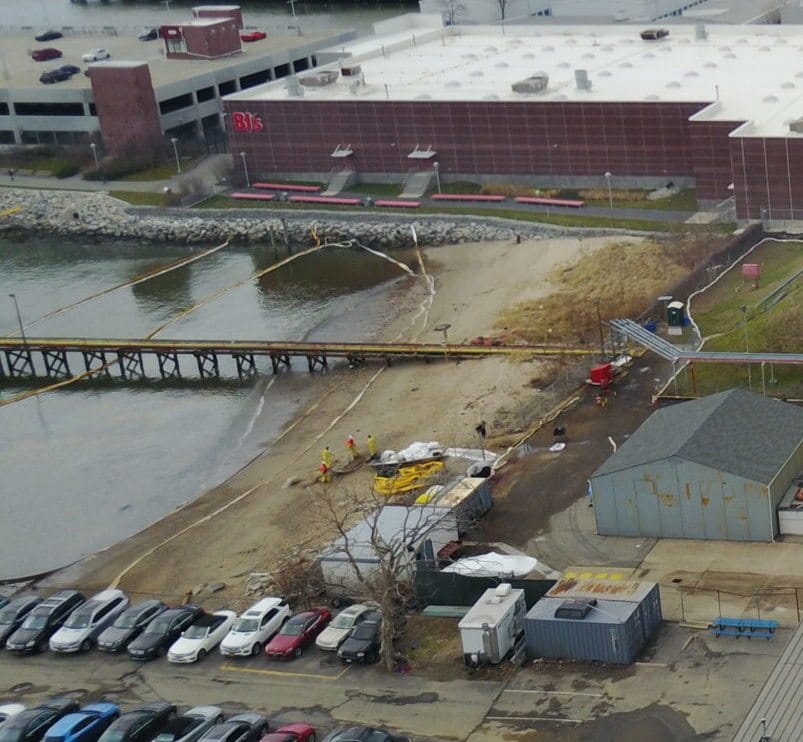
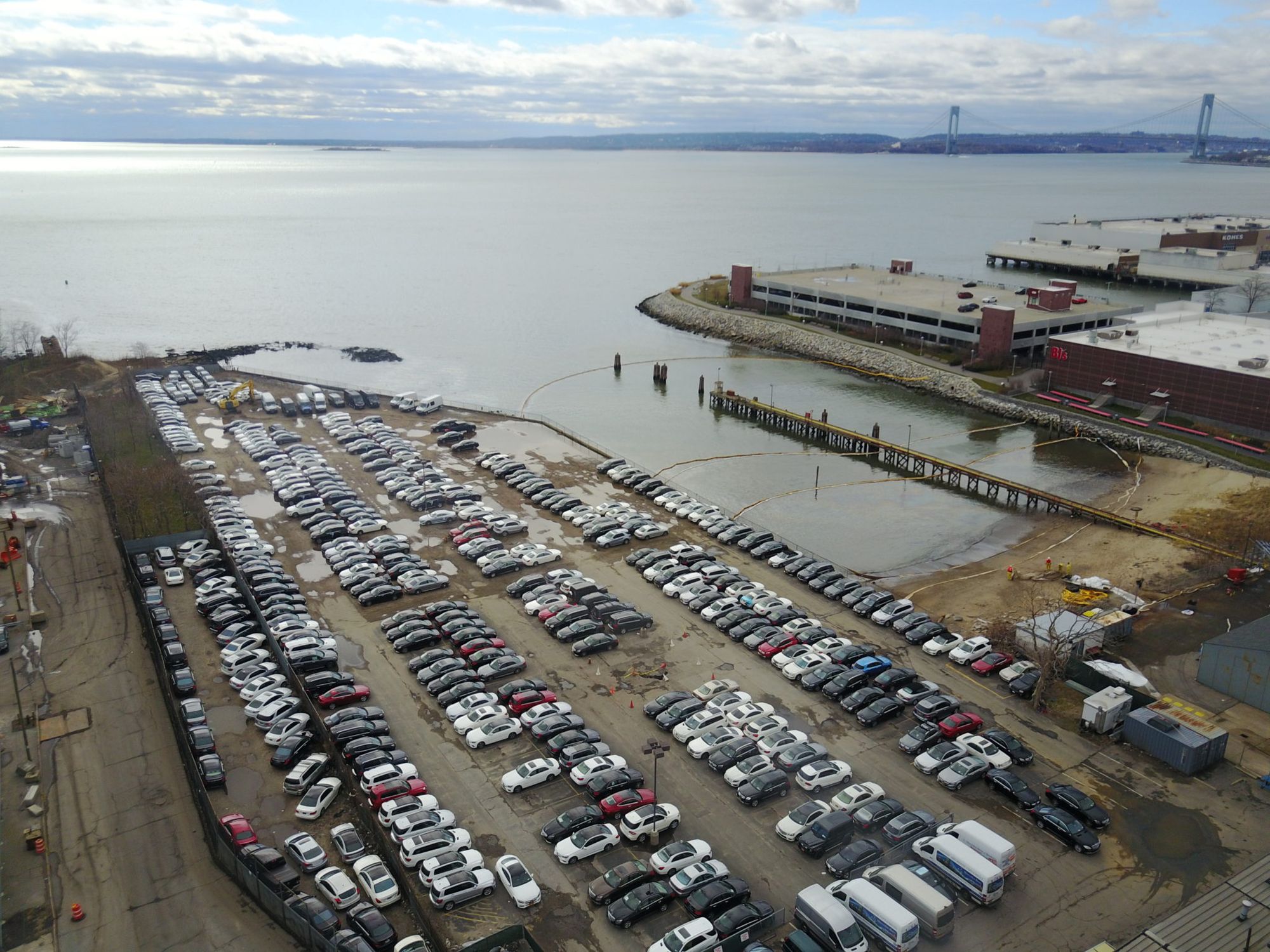
As of this week, 7,000 gallons of diesel oil — of the 27,000 spilled by a private fuel depot — have been recovered from the Gravesend Bay using concentric booms, the State DEC told BKLYNER.
However, about 20,000 gallons remain at large in the ongoing cleanup process that is expected to take several weeks.
Absorbent booms are trapping oil as we speak, as it trickles from beach sands with each tidal cycle. Contractors are also vacuuming oil-laden soils from the separator tanks.
And with all eyes on the business (including an ongoing investigation by the DEC), the Bayside Fuel Depot is designing a new oil/water separator which can trap as much as 3,000 gallons (in future spills) before they hit the water.
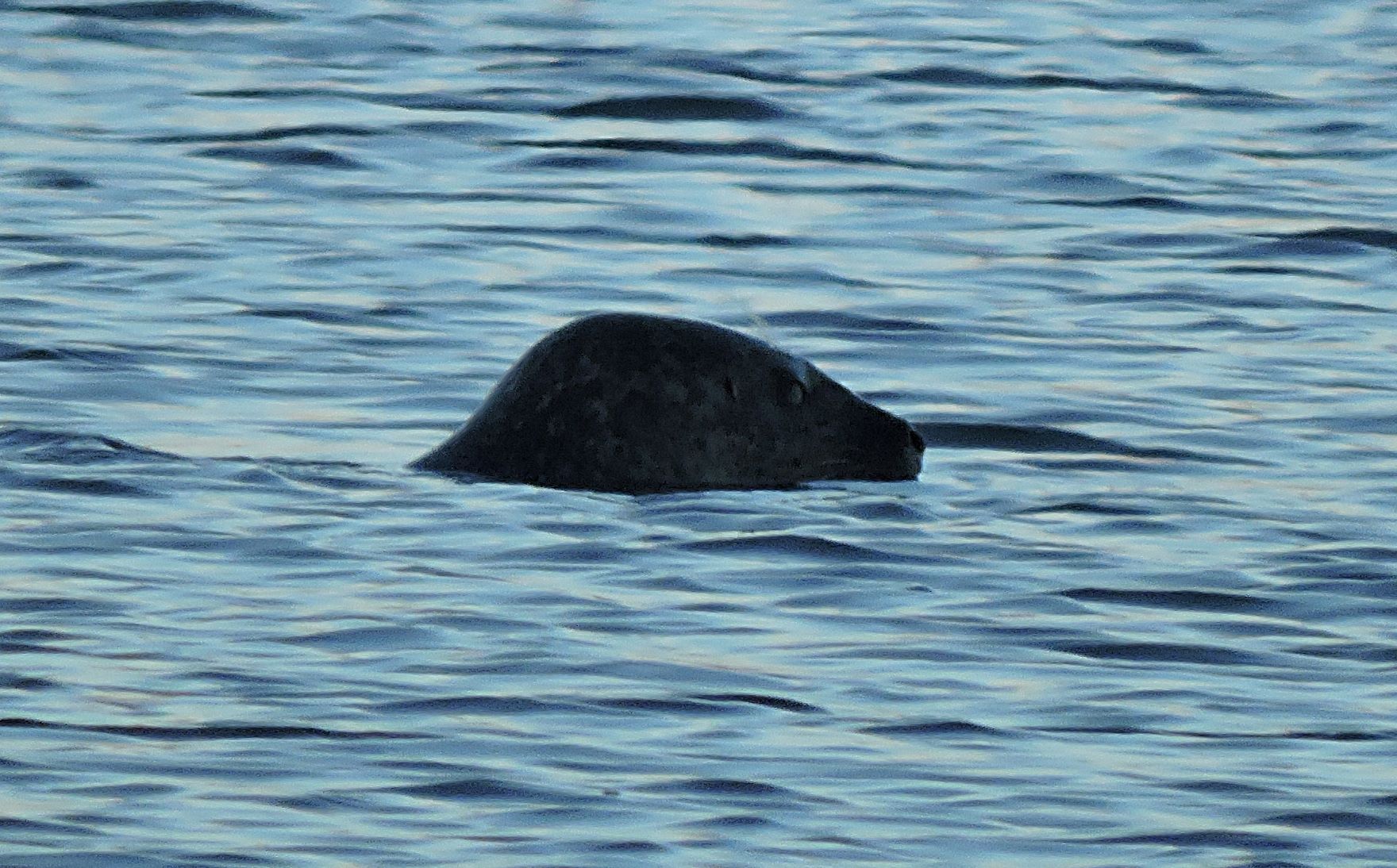
Marine life to watch
In the spill’s first week, a shiny film of water (or sheen) was spotted at Calvert Vaux Park, southern Brooklyn’s hauntingly beautiful green space that’s home to a rich marine ecosystem.
Now, contractors are still seeing a light sheen of oil on the water’s surface within the containment booms, but no additional sheening has been spotted at the park since late last week, said DEC officials.
But what about the first wave of oil? Gravesend Bay is an estuary, or a partially enclosed body of water that eventually connects to the ocean. The estuary harbors young fish that provide a critical food source for many rare birds and sea mammals that pass through on their migration routes.
When it comes to how an oil spill affects marine life, there are many variables like seasons, migration patterns, oil type, and weather. But there’s a ton of life out there in the bay, which is an essential fish habitat for species like winter flounder, said Ida Sanoff, chairperson of the National Resources Protective Association. You can also catch Blackfish, Cow Nosed Skates, Bluefish, Weakfish, Sea Bass — evidenced by the wave of people fishing by the Caesars Bay.
Birds are also very susceptible to oil spills because they hover around the water’s surface, according to the EPA spill response guide. And the number of bird species in the estuary is varied, said Sanoff, and includes the Common Loon, Great Cormorant, Red Breasted Merganser, along with a slew of ducks, geese, and gulls.
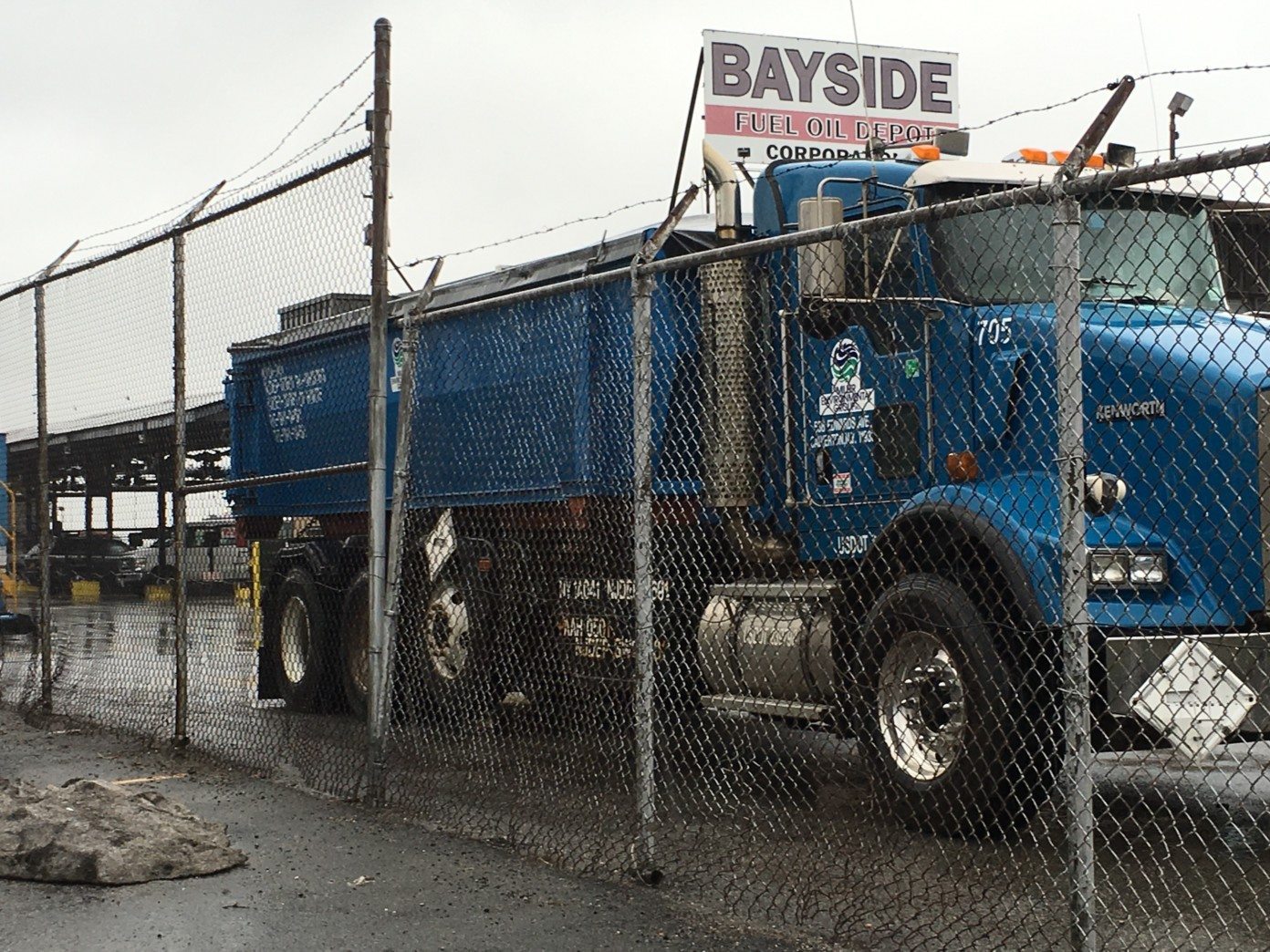
Penalties and investigations
Pending an investigation, the Bayside Fuel Oil Depot, the company responsible for the spill, could be slapped with penalties between $37,500 and $25,000 by the Environmental Conservation Law and New York Navigation Law.
Though a company spokesperson chalked the spill up to simple human error, the picture is getting larger as the investigation continues.
The person manning the station in the early hours of March 30 was a long-time employee who allegedly lost track of the time, said an FDNY investigator. But that still leaves some loose ends, for example, the depot is supposed to have two agents — one on each side of the transfer, along with malfunction alarms if something has gone wrong.
The DEC investigators now point to a broader “disregard for safety protocols.” In addition, some “aged equipment” is now being replaced at the depot.
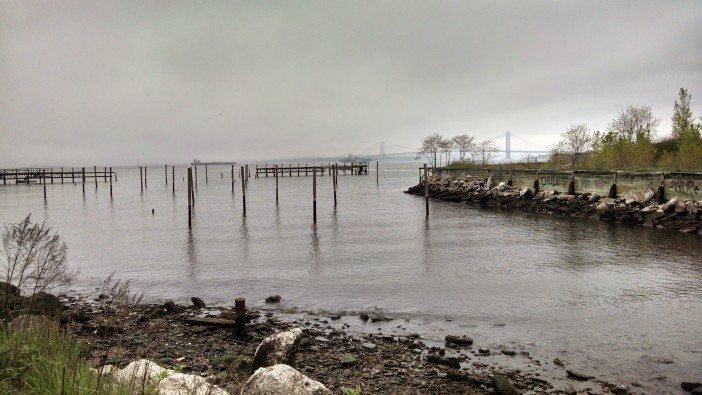
How big does the spill have to be to require public notice?
During a Superstorm Sandy-level disaster, a multi-agency Incident Command System (ICS) activates to handle emergency response, cleanup, and public notifications, said Elias Rodriguez at the EPA (the EPA was on hand for technical support during the spill).
But ICS wasn’t activated for the Gravesend Bay oil spill last month because it wasn’t big enough, said Gonzales. The spill didn’t even trigger the DEC’s water quality alert system*, which notifies subscribers of potential health and safety issues, because it is only meant to monitor sewage and not oil, according to DEC officials.
Since NYC water comes from the Catskill-Delaware watershed, the spill didn’t affect Brooklyn’s drinking water supply and didn’t pose an immediate public safety threat, officials said. There were only two responding agencies — the State DEC and the Coast Guard, and it didn’t activate the entire ICS command chain.
But how big does the emergency have to be?
We’ve brought this question to many experts at the Environmental Protection Agency, Department of Environmental Conservation, New York Coast Guard, Office of Emergency Management, and several other agencies involved in environmental disasters. But in the end, the answer is still murky.
“There isn’t a threshold, decisions are made on the ground by local emergency response teams,” said Rodriguez. “Another part of the equation is the business or polluter — responsibility for notifying the public could fall to company’s owner.”
Oil spills are way more common than we may think, said New York State DEC experts. There are teams dispatched to remedy spills at all hours of the day and night, including one just last week that sent 1,400 gallons into the drinking water in Highland Falls.
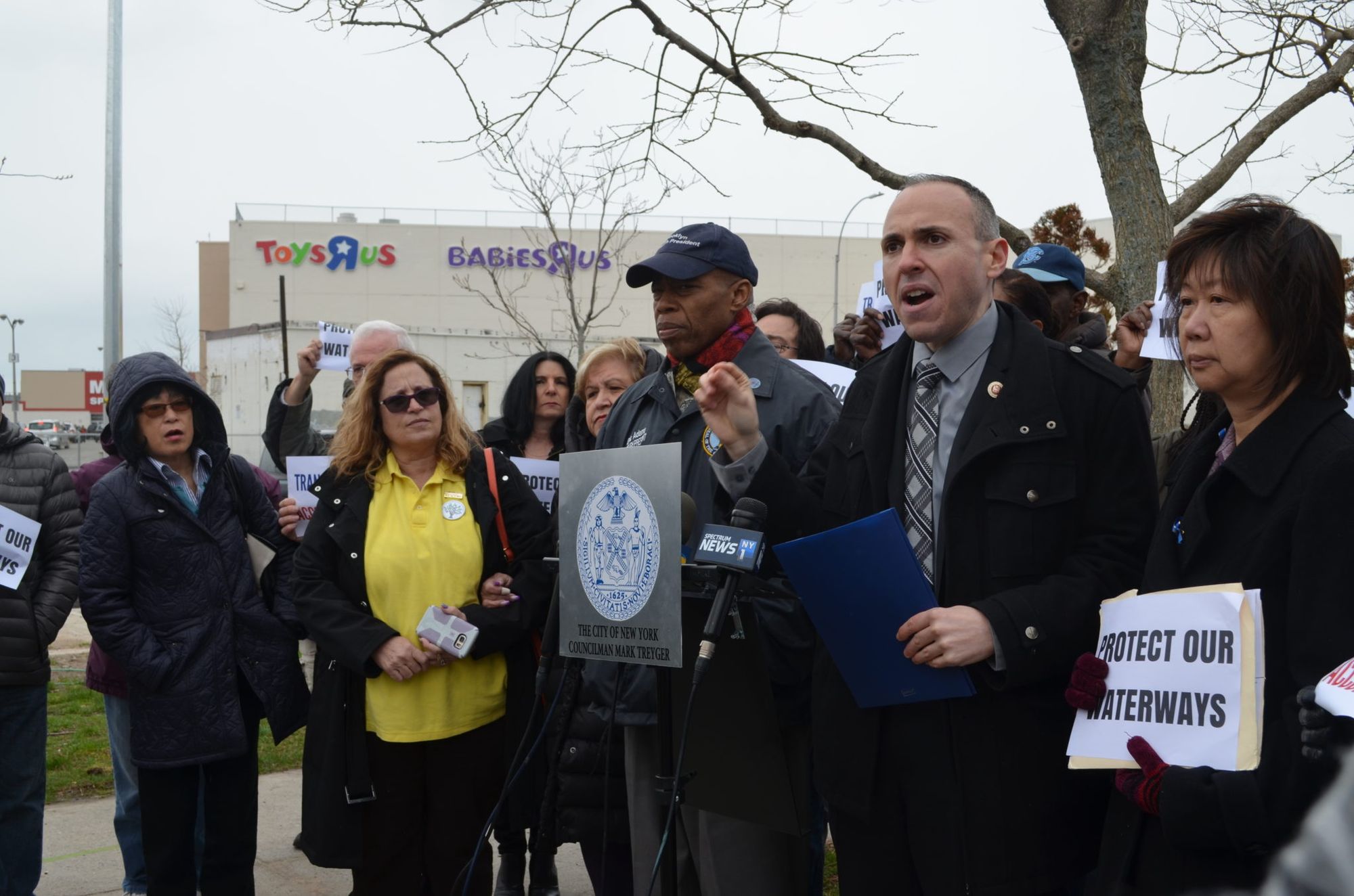
Several elected officials including City Council Member Mark Treyger (whose district includes the parks and waterways surrounding the depot) slammed environmental protection agencies for failing to notify them immediately after the spill. But they did notify Treyger — just a few days after he had already found out via word-of-mouth. In addition, they’re not legally required to report a spill of that size, officials said.
City Council Member Vincent Gentile appears to be among the first to be notified, along with U.S. Congressman Dan Donovan, both of whom have the Bayside Fuel Depot within their districts. Gentile posted about the spill twice on facebook stating that he had been in touch with several agencies over the weekend of March 31. It remains unclear how Gentile initially learned about the spill.
*[The NY Sewage Alert system has been a source of controversy over the Beach Haven Apartment sewage spill in 2015. We will continue to follow up with that story separately.]




